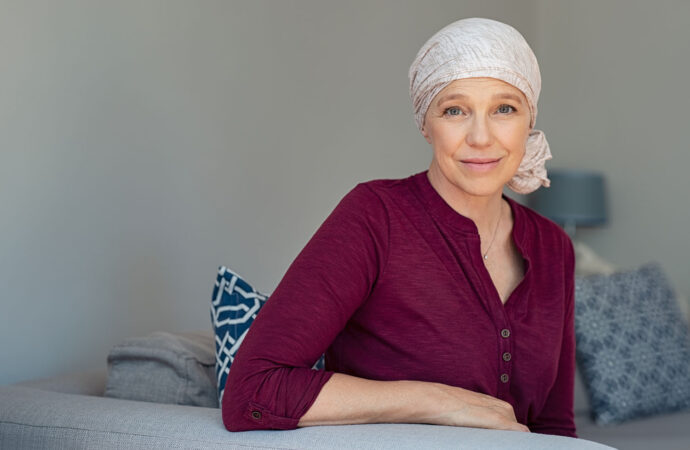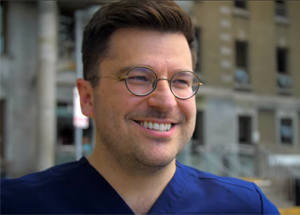 Cancer is responsible for nearly a third of the deaths in Canada1. Fortunately, there are screening programs implemented in each province to identify and manage the progression of the disease. Currently in Quebec, there are 3 cancer screening programs to identify breast, cervical and colorectal cancers2. Eligible females are invited via mail to participate in the Quebec Breast Cancer Screening Program and undergo a mammography. With regards to cervical and colorectal cancer screening, it is primarily the role of a physician to identify the individuals who are part of the defined population who meet the criteria of the screening program, to offer the opportunity for discussion of the risks and benefits and provide the referral to undergo the specific screening test. More specifically, it is the primary care physician who is mainly the gatekeeper to these specific cancer screening programs.
Cancer is responsible for nearly a third of the deaths in Canada1. Fortunately, there are screening programs implemented in each province to identify and manage the progression of the disease. Currently in Quebec, there are 3 cancer screening programs to identify breast, cervical and colorectal cancers2. Eligible females are invited via mail to participate in the Quebec Breast Cancer Screening Program and undergo a mammography. With regards to cervical and colorectal cancer screening, it is primarily the role of a physician to identify the individuals who are part of the defined population who meet the criteria of the screening program, to offer the opportunity for discussion of the risks and benefits and provide the referral to undergo the specific screening test. More specifically, it is the primary care physician who is mainly the gatekeeper to these specific cancer screening programs.
Amidst the reorganization of health care services during the start of the pandemic, the opportunities allotted to identifying eligible patients and promoting cancer screening tests has decreased. Screenings were placed on the back burner and, according to CBC, the Quebec provincial breast screening program was completely suspended during the first wave of the pandemic3. There were about 91,000 fewer mammograms done between April and December 2020 compared to same period the previous year. The objective to halt services was to free up staff and have as many hands on deck as possible to manage the burden that the pandemic was anticipated to pose on society. In Ontario, it was found that “during the first few months of the pandemic, mammograms decreased by 97%, pap tests by 88% and fecal blood tests for colon cancer screening by 73%”4. To make matters worse, Quebec estimated that over 4,000 people with cancer went undiagnosed during the first wave4.
Prior to the pandemic, the rate of participation in cancer screening programs was already low. For example, Ontario’s target of 85% for cervical cancer screening rate is contrasted with only 65% of women, meeting cervical cancer screening criteria, undergoing recommended testing5. These numbers are influenced by many factors that can affect the rate of completed screening tests, such as the frequency that doctors offer the recommended tests, how open the patients are to undergo the specific testing procedures and the amount of people that follow through with organizing and attending the test date6. This also leaves much room for the gap between target rates and actual rates to widen as many more barriers can present in the face of a pandemic. Many doctors already felt that due to time constraints, their roles are primarily to treat presenting problems over prevention and that cancer screening was often opportunistic7. Now, with a more pressured atmosphere during the pandemic to provide medical services to acute cases and focusing attention on more urgent conditions, screening tests seem to have taken an even greater hit.
To add, under the cloud that COVID-19 has set over the world, people had grown weary of presenting themselves to doctor offices for many reasons. There was an air of discouragement to presenting oneself to the doctor’s office if they didn’t have pressing issues because people knew that the available manpower was largely reoriented to the pandemic and those affected by COVID-198. There was also an apprehension to go to a healthcare milieu out of fear of catching the virus from others around them and simply leaving one’s home if the trips weren’t deemed essential8. Despite letters being sent out recommending individuals for screening, people are not following up as one would hope for and the numbers of missed appointments has grown3. There have been efforts made to encourage people to get screened, and in Thunder Bay, their promotion aims to raise awareness that “Cancer doesn’t stop for COVID-19”4.
With prevention being the number 1 goal in cancer care, the impact of missed screening tests can be and will likely be significant. More people are already presenting with symptomatic cancers at a more advanced stage3. The results from simulation models projecting reduced screening volumes and the potential impact that can ensue in Canada are important. For breast cancer screening, a 3-month interruption of screening services can cause 310 more cases to be diagnosed at advanced stages and cause 110 more deaths in a 10-year period. For colorectal cancer, a 6-month interruption could increase the cancer incidence by 2200 cases and 960 more deaths9. More advanced cancer diagnoses undeniably lead to greater demand of health care resources, longer treatment times, more aggressive treatment options and greater burdens and worse prognoses for individuals affected. With more than half of patients with colorectal cancer being diagnosed at stage 3 or 4, Dr. Barry Stein, the president of Colorectal Cancer Canada, hopes to have Quebec launch a population-based screening program for colorectal cancer rather than rely on doctor visits to prescribe the required tests3. He would also hope to see the opening of private clinics that would be covered by health insurance that would help deal with the backlog of screening tests.
There are many ways that you can lessen the growing gap of missed screens. One possibility is to develop your own “screening program” of your practice and patients! Consider developing a protocol, either in your own individual practice or as a family medicine group-wide project, that would facilitate identifying patients with missed screening tests and opportunities to offer these tests during a patient’s appointment. Taking advantage of one’s electronic medical record software to do so is a feasible quality improvement project that has your patient’s health at its core.
ABOUT THE AUTHORS
 Mitchell Saklas
Mitchell Saklas
I am a third-year medical student at McGill University. I was inspired to write about this topic as I believe there is great value in preventive medicine and continued quality improvement that I intend on utilizing, hopefully, as a family physician. This compliments my background in promoting an active and healthy lifestyle as a physiotherapist and will allow me to provide care to my future patients that places their health first and meets their needs.
 Myriam Stephan
Myriam Stephan
I am a Med-3 student at McGill University. I am currently co-president of the Family Medicine Student Interest Group after being a Med-2 representative last year. I am passionate about family medicine and the variety of practice that one can build as a family physician, and I have a particular interest in promoting this specialty and advocating for improved patient care.
REFERENCES
1- Cancer statistics at a glance (November 10, 2021). Canadian Cancer Society.
2- Cancer screening (November 10, 2021). Quebec Cancer Foundation.
3- Cervical cancer screening rates below provincial target, vary with neighbourhood income (November 10, 2021). Cancer Care Ontario.
4- Duong, D. (May 17, 2021). Doctors warn of late diagnoses as cancer screening backlog grows. CMAJ news.
5- Hendry, L. (February 2, 2021). Cancer that went undetected during the pandemic an ‘impending disaster’, specialists warm.
6- Patient completion of screening tests (November 10, 2021). Health Quality Council of Alberta.
7- McIlfatrick, S. et al. (2013). Investigating the role of the general practitioner in cancer prevention: A mixed methods study. BMC Family Practice. 14:58.
8- Cheney, C. (January 27, 2021). Missed cancer screening during coronavirus pandemic raises alarm.
9- Yong, J. et al. (2020). The impact of episodic screening interruption: COVID-19 and population-based cancer screening in Canada. Journal of medical screening. 28(2):100-107.










